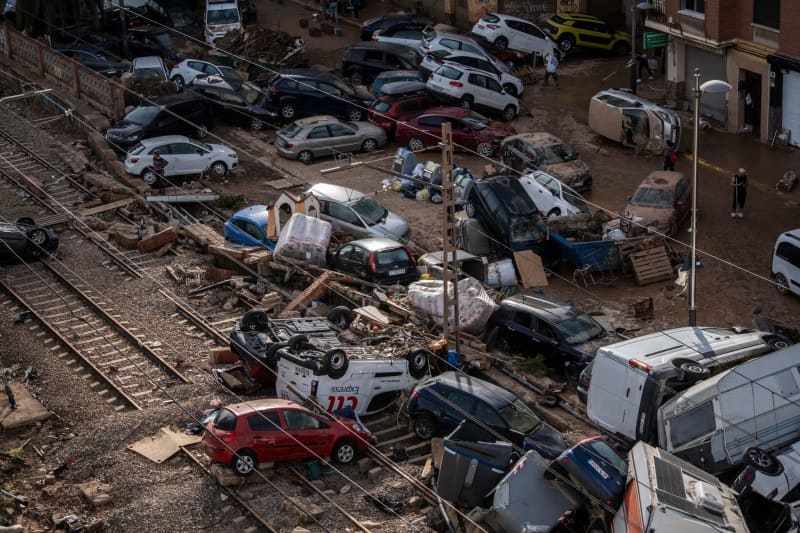Three days following devastating flash floods in Spain, emergency services successfully rescued a woman who had been trapped in her car alongside the body of her sister-in-law. The incident unfolded in the Valencia region, which was severely impacted by the floods. Authorities, including local police in Moncada, shared the uplifting news on social media platform X. In a video that captured the moment, Martín Pérez, the president of Valencia’s civil defense, informed a group of employees about the woman’s rescue, prompting applause and a wave of emotions. The harrowing situation highlights the dire circumstances that residents faced during the natural disaster.
The rescue took place in Benetússer, a municipality located south of Valencia city, where floodwaters had wreaked havoc. Reports indicate that the woman had been trapped in the vehicle for an agonizing three days as the floodwaters rose. She was discovered when rescue workers, engaged in towing away other stranded cars from a tunnel, heard her screams. This marked a moment of relief amid an otherwise tragic scenario, showcasing the determination of emergency responders to save lives even in the most challenging conditions.
Once rescued, the woman was taken for medical evaluation, although initial reports did not provide specific information regarding her health status. The emotional toll of such an experience can be immense, especially given the loss of her sister-in-law, who did not survive the ordeal. The psychological and physical impacts of surviving such a disaster are profound and can affect the individual and their community for an extended period. This incident underlines the need for comprehensive support systems for survivors of natural disasters.
The broader context of this tragic event reveals the extensive damage caused by the severe storms that hit the region on a Tuesday. According to the latest statistics from the Spanish government, the impact of the floods was catastrophic, with at least 211 fatalities reported, predominantly in the Valencia area. The scale of destruction is staggering, highlighting the vulnerability of certain regions to extreme weather events exacerbated by climate change. This tragedy serves as a harsh reminder of the consequences of environmental disruptions and the urgent need to improve infrastructure and emergency preparedness.
In the aftermath of the floods, local authorities and the national government face the daunting task of recovery. This involves not only rescuing those still in danger but also addressing the long-term implications of the natural disaster on the affected communities. Repairing damaged infrastructure, providing support to the bereaved, and safeguarding against future occurrences are critical steps that must be taken to restore normalcy and ensure safety for residents in the region. Public discussions about climate resilience and community preparedness are likely to intensify as citizens reflect on the vulnerabilities exposed by the floods.
As Spain grapples with the ramifications of this disaster, community solidarity becomes paramount. The collective response from emergency services and the outpouring of support from locals who rallied to assist those in need are encouraging signs of resilience in the face of tragedy. The story of the trapped woman, while deeply heartbreaking, also serves to remind us of the strength and determination that can emerge from difficult circumstances. As recovery efforts continue, there lies a hope that lessons learned will contribute to a more resilient future for the communities affected by such natural calamities.

